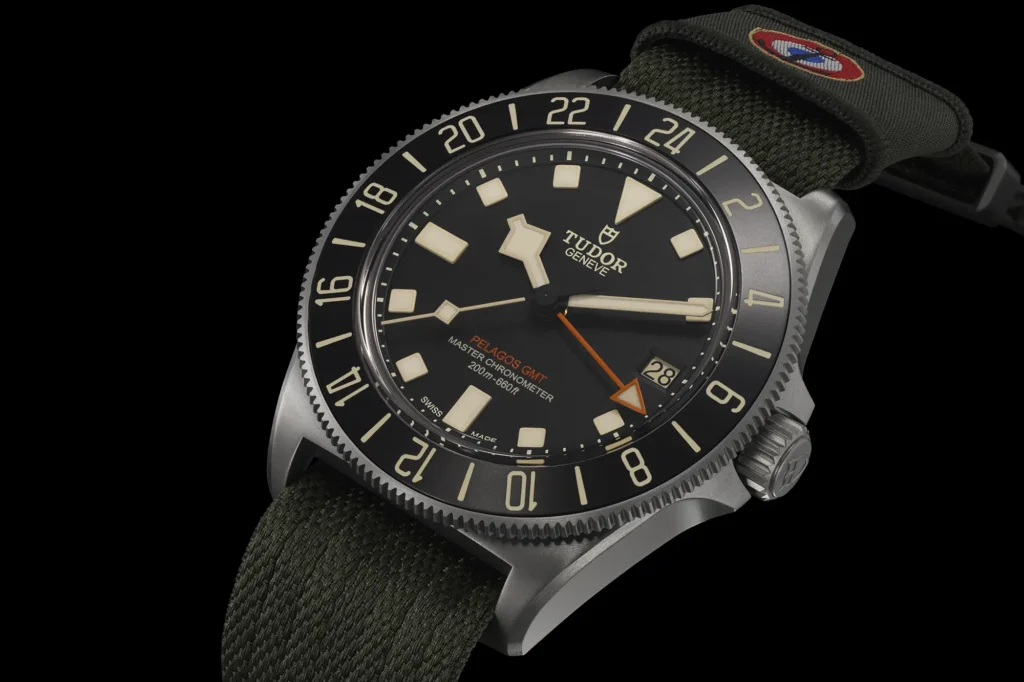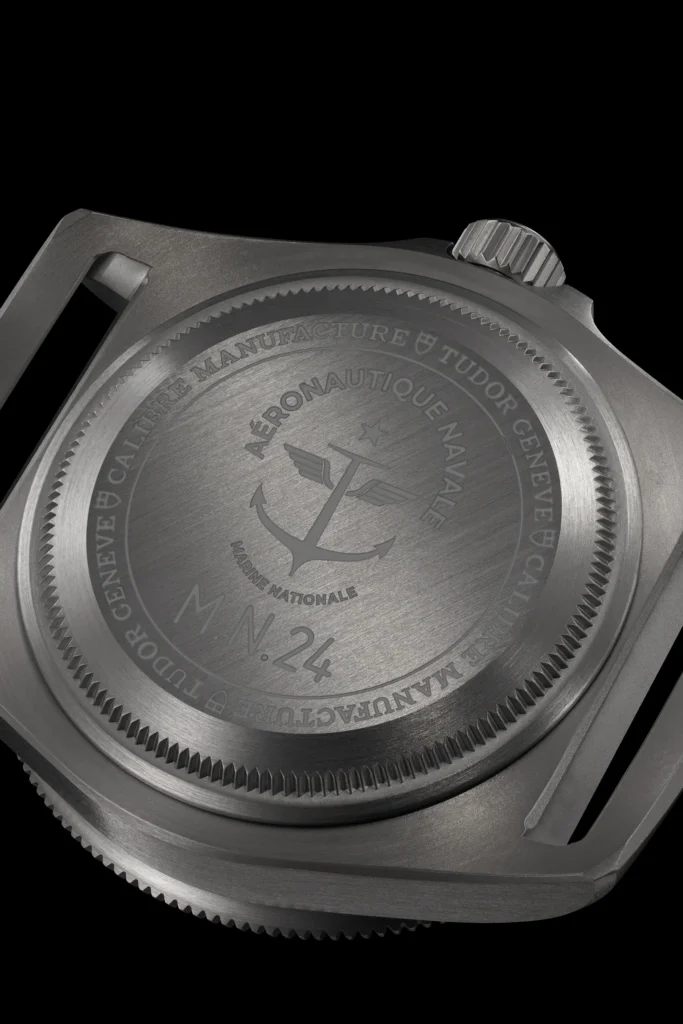It’s been fun to speculate at Tudor’s new releases over the past five years, mostly because it rarely results in anything accurate. The brand has a way of zigging just when you think they’re going to zag. But this has resulted in some of the great releases, giving us watches like the FXD, which has undoubtedly become the defacto diver of the modern era. It’s a highly focused design unburdened by vintage inspiration that’s been embraced by watch enthusiasts within the diving community, building a new chapter of Tudor dive watch lore in the process. In speculating on what Tudor might do next, there’s been a consistent prediction of an FXD GMT, and today, Tudor makes that a reality, and expands the purview of the collection in the process. This is another watch built for the French Navy, but this time, for its pilots rather than its divers.

Catch this week’s podcast with more of my thoughts on this new release from Tudor:
When Tudor first launched the FXD in 2021 it kicked off their modern relationship with the Marine Nationale, or the French Navy. The watch itself had plenty of quirks intended for their unique use case, and the result was a diver with loads of character and charm. The FXD family within the Pelagos collection has grown considerably in the intervening years, adding a chronograph complication, and even a carbon composite case material to the mix. Each targeting a very specific audience, from cyclists, to yacht racers, to divers. With this new FXD GMT, the target returns to the Marine Nationale, and more specifically, the pilots of the Aéronautique Navale.

An FXD with a GMT function sounds like a pretty straightforward pairing, and that’s exactly how Tudor has treated it. The 42mm case is rendered in titanium, with the fixed lug bar allowing only for a passthrough strap. The highly legible dial design remains just that, only now there’s a fourth orange hand tracking 24 hours as marked on the rotating bezel. Tudor is using the caliber MT5652-U here, which is METAS certified and allows for the hour hand to be independently adjusted to track local time on the go. Yes, there is a date included, which is another first for the FXD. Most importantly, the overall thickness has been held in check, at 12.7mm.

When the Black Bay 58 GMT released earlier this year, it immediately sparked questions about where else we might see the movement appear. This is a different movement designation, but the same lessons have clearly been applied. I’m still of the mind that a Pelagos 39 GMT would make the most sense, and it’s a watch that’s definitely still on my bingo card for the future, but again, Tudor never really takes the path many of us expect.

What will likely end up being the most divisive feature of the FXD GMT is the chosen color of the lume. What we have here does seem to lean into the ‘aged’ territory, but only just. It also looks to be a very conscious choice with the chosen color palette. It’s not full-on brown, but it’s not clean white, either. It’s been suggested that the tone used will be easier to read through night-vision goggles, though I am no position to confirm that, but it does highlight the fact that this watch was designed for a specific purpose, by a select group of people, and their needs are presumably balanced against what will ultimately make for a commercially viable design.

To my eye, the watch looks cohesive without forcing anything. There is certainly more clutter, and you could make an argument for no bars between the 24 hour markers on the bezel, but there’s no shortage of character on display, which I appreciate. The hits of orange in the dial work well with the warm undertones, and everything remains clearly legible at a glance, so no harm no foul.

The Tudor Pelagos FXD GMT is priced at $4,625, and the caseback will be stamped with the year of production alongside the M.N. stamp. I’ll have further impressions once I’m able to get my hands on the watch so keep an eye out for the full story coming soon. Tudor












